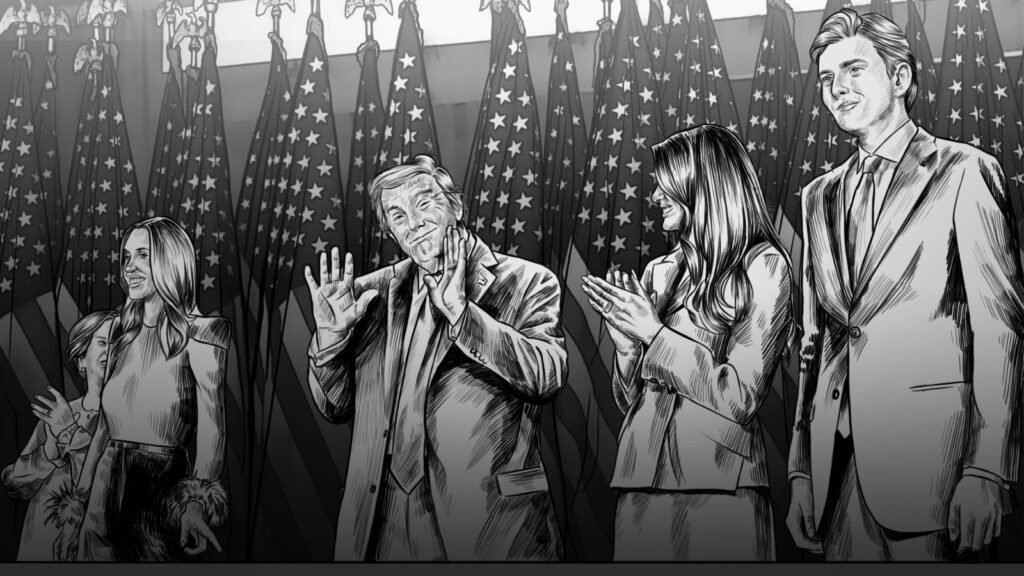Any human gathering requires agreement on decisions that affect their lives. This agreement does not necessarily mean identical opinions or perspectives but rather the minimum level of acceptance and consent among the majority.
Before reaching this stage of acceptance and consensus, society at the individual level needs internal national dialogue to present and discuss possible options.
Free media play the most crucial role in this societal dynamic. However, the term “free media” often borders on an idealistic concept, as every media outlet, no matter how objective, has its own agenda shaped by the demands of its funding source.
Therefore, democratic states strive to provide independent media that rely neither on advertising revenue nor government funding but on the general public across different sectors through mandatory monthly fees.
For instance, the British Broadcasting Corporation (BBC) is funded through mandatory fees, ensuring its independence from both the government and any internal or external private entity.
Details of these fees can be found on the UK Parliament’s website, which states: “Under the Royal Charter and Agreement, the BBC is funded primarily through a licence fee. In January 2022, the government announced that the cost of a colour licence would remain at £159 for two years, before rising in line with inflation from April 2024.5 A colour licence now costs £169.50 a year. The licence fee model is intended to safeguard the BBC’s independence from government and the market.”
“In 2023/24 total licence fee income was £3.66 billion. It was 3.74 billion the year before. There were 22.924 million licences in force at the end of March 2024. The previous year there were 23.425 in force. A licence is required, even if a viewer does not watch BBC programmes.”
License fees are mandatory for everyone, even those who do not have the capability to receive BBC broadcasts.
Elections and Referendums
Elections are conducted to select a person for a specific position, such as presidential elections or parliamentary elections, while referendums are held to decide on ideas, principles, or laws. Referendums are categorized into various types based on their nature and purpose.
Legislative Referendum
A legislative referendum is held to obtain public approval for a proposed law or legislative amendment. It can be optional, where the parliament or government seeks public opinion without binding implications, or mandatory if the law or constitution requires it to be presented to the people.
Constitutional Referendum
A constitutional referendum is conducted to amend, repeal, or add articles to the constitution or to adopt a new constitution. In democratic systems, this type is often mandatory because it pertains to the foundational legal framework of the state. It is further divided into two types:
– Foundational Referendum: To establish a new constitution for the country.
– Amendment Referendum: To modify specific constitutional articles.
Political Referendum
A political referendum focuses on general political issues, such as independence, separation, unity, or sovereign decisions
Referendums may take the form of a single-question vote requiring a “yes” or “no” answer or offer multiple options for selection.
One of the key challenges citizens face in referendums is when they are presented with only two choices—acceptance or rejection—covering a package of issues. The difficulty lies in cases where some elements are agreeable while others are not. The voter is forced to choose between two unfavorable options, selecting the lesser of two evils, as if voting on each issue separately were not an option.

Referendum History
The roots of referendums date back to early historical periods, evolving significantly over time to become an integral part of modern political systems.
In ancient Greece, direct democracy was practiced in cities like Athens, where free citizens (not slaves) participated directly in decision-making at the general assembly.
Similarly, in ancient Rome, some public councils used referendum-like tools to vote on specific laws or decisions regarding war and peace.
In the modern era, referendums took a more organized form with the spread of democratic ideas during the 18th and 19th centuries. The first recorded referendum was in Switzerland in 1793 during the French Revolution. Napoleon Bonaparte used referendums in the 19th century to affirm his legitimacy as emperor through popular votes.
Notable historical referendums include the Indian independence referendum in 1947, the Egypt-Syria union referendum in 1958, and the Brexit referendum in 2016.
The 2024 Qatari Constitution Referendum
Qatar, as a modern Arab state, emphasizes respect for law and human rights and continuously strives for greater democracy, transparency, and well-being.
The General Referendum Committee, headed by the Minister of Interior, Sheikh Khalifa bin Hamad bin Khalifa Al Thani, announced the results of the 2024 constitutional amendments referendum. After the completion of vote counting by paper, electronic, and Metrash2 app ballots.
the results showed an 84% voter turnout among eligible citizens. Of these, 89% approved the amendments, 9.2% voted against, and 1.8% of the votes were invalid.
The Qatari News Agency reported that Minister Sheikh Khalifa announced a 90.6% approval rate among valid votes.
The amendments included updates to 15 constitutional articles, the addition of a new article, and the repeal of three articles.

Key changes include Article 1, reinforcing Qatar’s identity as an Arab Islamic democratic state founded on principles of consultation, justice, and rule of law, with Islamic Sharia as a primary source of legislation.
Another significant amendment, Article 77, transitioned from electing two-thirds of the Shura Council to appointing all 45 members by an Amiri decision.
Article 80 was also revised to allow naturalized Qataris to become Shura Council members under specific conditions, removing the original requirement of being a native Qatari.
The new Article 75 grants the Emir the authority to convene the ruling family council, legal experts, and the Shura Council for discussions on critical issues. Meanwhile, Article 125 enables the Prime Minister to delegate certain powers to deputies or ministers, enhancing governmental responsibility distribution.
Article 7 was updated to emphasize Qatar’s role as an international mediator, aligning with its regional and global policies.
Additionally, Article 117 was amended to allow naturalized Qataris to hold ministerial positions, promoting equal citizenship as emphasized by Emir Tamim bin Hamad Al Thani.
This referendum follows Qatar’s historic first parliamentary elections in October 2021 and is only the second general referendum since the 2003 permanent constitution approval.
Qatar’s leadership views these constitutional amendments as pivotal to fostering political stability and decision-making transparency, aligning with Qatar National Vision 2030, which prioritizes consultation and justice.
Elections and referendums remain cornerstones of the democratic process, enabling citizens to express their will and shape their nation’s future.
American Democracy: Balancing Between History and Modernity
The mechanisms for achieving democracy vary from one country to another. In the United States, the democratic system is uniquely complex due to historical reasons, blending federal laws and local procedures. It serves as a model of modern democracy rooted in ancient traditions that have evolved over centuries to meet contemporary needs.
The first U.S. presidential election was held in 1789, electing George Washington as the first president. The U.S. Constitution, ratified in 1787, outlined the electoral system’s framework, leaving finer details to individual states to address their specific needs.
Over time, electoral laws underwent significant amendments to expand participation and ensure fairness. For example, the 15th Amendment (1870) granted voting rights regardless of race, the 19th Amendment (1920) gave women the right to vote, and the 26th Amendment (1971) lowered the voting age to 18.

These changes dramatically increased the electorate and reshaped campaign dynamics.
A distinctive feature of U.S. presidential elections is the Electoral College, where the president and vice president are elected indirectly. Voters in each state choose electors who then cast votes for the president and vice president.
The Electoral College consists of 538 members, representing the total number of House (435) and Senate (100) seats, plus three electors for Washington, D.C. States allocate electoral votes based on congressional representation, with the winner in most states taking all electoral votes, except in Maine and Nebraska, which use a proportional allocation system.
Although criticized, the Electoral College aims to ensure representation for smaller states, preventing populous states from dominating the electoral process.
Federal laws regulate key aspects of elections, including setting the presidential election date as the first Tuesday after the first Monday in November.
The Federal Election Commission oversees campaign financing to ensure transparency and limit undue financial influence.
Federal laws prohibit discrimination against voters based on race, gender, or age for individuals over 18 years old.
While federal law provides a general framework, states wield broad authority over specific aspects, such as voter registration methods, voting procedures (paper or electronic), early and absentee voting, and vote counting and result announcements.
The electoral process begins with primaries and caucuses, where the Democratic and Republican parties select their candidates. Procedures vary by state, with some holding open primaries and others closed. Delegates are chosen to vote for candidates at each party’s national convention based on primary results.
On Election Day, voters cast their ballots to select members of the Electoral College, who will then vote for the president. States employ various methods to facilitate the voting process, including early voting, mail-in voting, and electronic voting.
Electoral College members meet in their state capitals in December to cast their votes. These votes are sent to Congress, where they are officially counted in January.
Critics of the system argue that it can result in a candidate winning the presidency despite receiving fewer popular votes, as occurred in the 2000 and 2016 elections. This has led to calls for abolishing the Electoral College in favor of direct popular voting.
In recent years, some states have passed laws that restrict access to polling stations, raising concerns about their impact on the participation of minorities and marginalized groups.
Additionally, with the advancement of technology, concerns about election security have emerged, particularly following reports of foreign interference in the 2016 elections.
The Paradoxes and Peculiarities of Democracy
One of the ironies of democracy is that it enabled the Nazi Party, led by dictator Adolf Hitler, to ascend to power through the ballot box, leading Germany to its devastating fate.
Equally paradoxical is that this very nation, despite its advancement, seems not to have learned the lesson even after more than seventy years since World War II in the mid-20th century. By the second decade of the 21st century, it has turned a blind eye and even supplied the most lethal weapons to an occupying force, used for over a year in Gaza to bomb a defenseless population, most of whom are women and children.
It is true that freedom is a vital value for individuals and nations, but without ethics, it is only a step away from falling into the abyss of absurdity and nihilism.
And how easy it is to exploit legal texts and legislative loopholes when moral integrity is corrupted.
Will anyone take heed?





I am really impressed along with your writing skills as neatly as with the format for your weblog. Is this a paid topic or did you modify it your self? Either way stay up the excellent high quality writing, it’s uncommon to see a nice weblog like this one these days. !